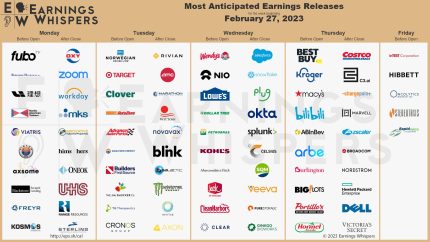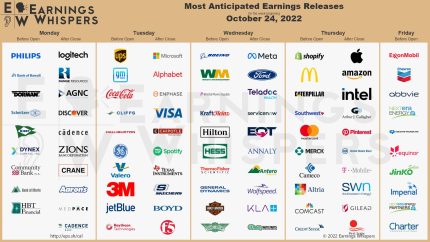
Earnings season is the time when publicly traded companies are required to report their quarterly earnings, including net income, sales numbers, earnings per share, and more.
While market analysts take a variety of data into account when making market predictions, a company’s quarterly earnings report arguably carries the most weight.
The performances of businesses in a specific industry or overall can also be an indicator of the condition of the economy in general – and by extension, of the stock market.
Why do earnings reports attract so much attention?
Earnings reports have the ability to drive stock prices when compared to analysts’ speculative estimates, released prior to the actual earnings announcement. A company’s market value may fluctuate considerably around the publication time of the earnings report. Earnings per share (or EPS) is considered especially noteworthy, representing a company’s earnings in relation to its market cap.
Companies will also usually provide additional relevant data. For example, Netflix often reports new subscriber numbers and the budget it has allocated for new content creation, while Apple shares figures such as the number of iPhones sold over the past quarter.
How earnings reports affect stock trading
The earnings season can be a time of great opportunity, since better-than-expected figures could cause a company’s stock to greatly increase in value. Lower-than-expected results could have the opposite effect.
Your capital is at risk. This is not investment advice. CFD trading.
CFDs are complex instruments and come with a high risk of losing money rapidly due to leverage. 76% of retail investor accounts lose money when trading CFDs with this provider. You should consider whether you understand how CFDs work, and whether you can afford to take the high risk of losing your money.
Tags: earnings, raportari financiare















